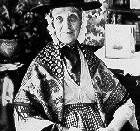In this essay I will be discussing the views of Wales and its people under the Tudors. I shall be looking at literature and its attitudes towards the people, why the Welsh were viewed as uncivilised, hostile and foreigners and the reasons why it was so important for everyone to speak English.
The English in the sixteenth century shared the island of Britain with neighbouring Wales and Scotland, with whom their relations ranged from uneasy and unequal co- existence to outright conflict. Still more troubled and productive of anxiety was England's relationship with the island of Ireland.
The strife between the "English" and the "Welsh" goes back to times before the creation of any sense of a Welsh or English identity, when Celtic tribes in what is now Wales fought the Saxon invaders of England. During this period Wales was a collection of minor kingdoms, united by language and culture but competing with each other.
During the 9th century several Welsh noblemen allied themselves with King Alfred of England, an alliance which eventually led to Welsh dependence upon English protection.
There were several attempts by Welsh leaders to unite the country through military conquest. Probably the most successful of them was Llewelyn ap Gruffudd, self-styled "Prince of Wales". But in 1283, the last independent Welsh princedoms were subjugated by Edward I. In the following centuries, large numbers of English settlers were moved into Wales, while the rights of the Welsh people were restricted. The beginning of the 15th century saw the last attempt to gain independence for a united Wales, when Owain Glyndwr led an uprising against English rule. Owain Glyndwr set up Wales' first and only parliament at Machynlleth, but his fight was ultimately unsuccessful, when he lost the support of his Scottish and French allies and was...


